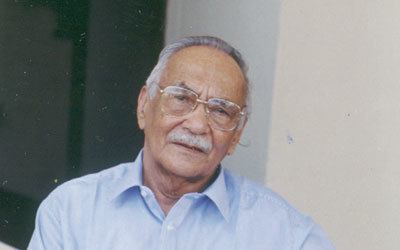Stamping the name “Ceylon” in history, the talented and versatile young athlete “Duncan White” won the first Olympic medal in 1948 – the same year Ceylon gained Independence from Britain.
As the second child of the John Bernard White and Cecilia Hawk White, Duncan White was born on 1st March 1918 in Kalutara. The family moved from Kalutara to Kandy with the motive to give their children a good higher education. Duncan, along with two of his brothers, joined Trinity College and the other brother went to Kingswood College.
Duncan’s life at school was more towards sports since early grades. He played both rugby and boxed, although his coaches Major Harry Hardy and Philip Buljens noted his physical structure would be ideal for athletics. This was the moment when the legend entered athletics. Both the coaches encouraged him to participate in 110 yards hurdles, 220 yards hurdles, and long jump. By the age of 16, he got selected to College athletic team and by 18 years in 1936, he was able to conquer the captaincy.
In 1936, at the schools’ athletic meet he was able to create a schools’ and national record in the 220 yards sprint, finishing his run in just 23.3 seconds and surpassing the record of renowned athlete Stanley Livera. At the same meet, he emerged champion in the 20 feet long jump and 110 yards hurdles. He also was a member of the relay team which won the Jefferson Trophy. The highlight of this meet was Trinity College winning her maiden Tarbet trophy as the overall champions. For his performances at the event, he was awarded the coveted ‘Lion’ in the year 1937.
In the 1937 National Athletic meet, he was first in the 440 yards hurdles, creating a national record by finishing in 52 seconds. In the same year, he broke his own record in the 440 yards hurdles finishing in just 50.4 seconds. Finally, that year and while still at college, Duncan was selected to represent the country at an international athletic meet – the 400m hurdles at the Empire Games in Sydney, Australia. And that was his last year at Trinty College.
In 1942, with the onset of WWII, Duncan was commissioned as an officer in the Ceylon Light Infantry. In November 1947, Duncan was demobilized. He later joined the Ceylon Volunteer Force, going on to become a Major and gaining the Efficiency Decoration.
The victory wasn’t an easy one, he faces several hardships and he somehow managed to overcome come those hardships. While participating in the 110m hurdles at Sydney Empire games in 1938, Duncan got injured. But somehow with the encouragement he had was places third in the heats but unfortunately, he couldn’t make it to the semifinals because of an injury he had.
He challenged his own destiny, through all those unpleasant experiences he had at Sydney he molded his victory. It was the twisted point in his life, the achievements he had after that were immense.
Following are his achievements between the 1938 Sydney games and the 1948 Olympics:
- Gold medal in 100 yards sprint and 440 yards hurdles at the National athletic meet in 1939
- Gold medal in 400m hurdles and 400m sprint at the India-Ceylon athletic meet in 1940
- Gold medal in 440 yards sprint and 220yards sprint at the Government services athletic meet in 1941
- Gold medal in 120 yards hurdles and 440 yards hurdles at the National athletic meet in 1942
- Gold medal in 220 yards hurdles at the Defence services athletic meet in 1945
- Gold medal in 400m hurdles and 120m hurdles at the India-Ceylon athletic meet in 1946
As a result of all these performances leading up to the Olympics, in 1948, Duncan was selected to the Olympic squad as the captain of the Ceylon team.
While Ceylon getting independence from Britain, Duncan was able to mark the history with his Olympic Silver medal in 1948. The exact day was 31st July 1948. It is said that he performed very well in the heats and got selected for the final.

UNITED KINGDOM – JULY 31: The American Roy COCHRAN winning the 400-meter hurdles over Duncan WHITE from Ceylon (second) and Rune LARSSON from Sweden (third). 

14th August 1948: Duncan White of Ceylon fixes his starting blocks to the track at the 1948 London Olympics. Original Publication: Picture Post – 4582 – Fastest Men On Earth – pub. 1948 (Photo by Picture Post/Hulton Archive/Getty Images) 
After the Olympic win, the Education Department of Ceylon awarded Duncan with a scholarship to study physical education at Loughborough University, United Kingdom. Due to his excellence in athletics, he was appointed as the captain of the Loughborough University athletic team in 1949 and 1950. At the university sports meet, he won 5 events and won the Victor Ludoram trophy. Duncan placed first in the 220 yards sprint finishing his run in 22.5 seconds, recording the best timing after 30 years.
He was appointed a Member of the Order of the British Empire (MBE) and awarded the Helms World Trophy as the “Most Outstanding Athlete” in Asia.
With all the achievements he came back to Ceylon in 1951, then he was appointed as the Head coach of the National schools’ athletic team.
In 1952, Duncan married Angela and they were blessed with six children. He choose England to spent his old age with family. Duncan passed away at the age of 80 on 3rd July 1998 in Nuneaton, Warwickshire, Great Britain.
Credit – Trinity College, Wikipedia













Loading…
Loading…